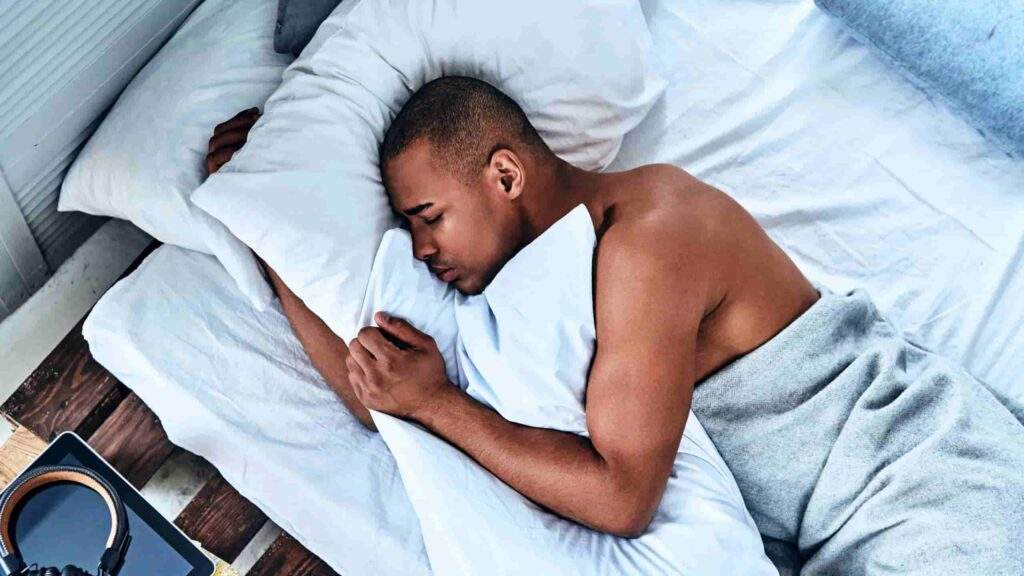A Comparative Analysis of Medical Marijuana, Over-the-Counter, and Prescription Sleep Aids: Quality of Sleep and Side Effects
The quest for a good night’s sleep has led many individuals to explore various sleep aids, ranging from traditional over-the-counter (OTC) options to prescription medications and, more recently, medical marijuana. Each category of sleep aid operates through distinct mechanisms, affecting the sleep-wake cycle differently. In this comparative analysis, we will delve into the qualities of sleep induced by medical marijuana, contrasted with those of traditional OTC and prescription sleep aids. Additionally, we will explore the potential side effects associated with each, shedding light on the considerations individuals may weigh when seeking a suitable sleep aid. Getting adequate amounts and quality of sleep are critical to our overall physical and mental health. Let’s take a look.
Mechanisms of Action:
- Medical Marijuana: Medical marijuana contains cannabinoids, such as THC (tetrahydrocannabinol) and CBD (cannabidiol), which interact with the endocannabinoid system in the body. This system plays a crucial role in regulating various physiological processes, including sleep. THC, the psychoactive compound in marijuana, is known to have sedative effects and may promote relaxation, while CBD may have a more modulating influence on the sleep-wake cycle.
- Over-the-Counter Sleep Aids: OTC sleep aids typically contain antihistamines, such as diphenhydramine or doxylamine, which have sedative properties. These compounds block histamine receptors in the brain, leading to drowsiness. Some OTC sleep aids may also include herbal supplements like valerian root or melatonin, a hormone that regulates the sleep-wake cycle.
- Prescription Sleep Aids: Prescription medications for sleep often fall into two categories: benzodiazepines and non-benzodiazepines. Benzodiazepines, like diazepam, enhance the effects of the neurotransmitter GABA, leading to increased relaxation and drowsiness. Non-benzodiazepines, such as zolpidem, target specific receptors in the brain to induce sleep while minimizing the potential for dependence.
Quality of Sleep:
- Medical Marijuana: Studies on the impact of medical marijuana on sleep suggest variable results. While some users report improved sleep quality, others experience disruptions, particularly in the REM (rapid eye movement) phase of sleep. The sedative effects of THC may help initiate sleep, but its influence on the overall sleep architecture requires further research. CBD, on the other hand, might have a more nuanced impact, potentially modulating sleep patterns without the same sedative effects. Interestingly, there are many patients for whom cannabis provides an excellent sleep result when many other medicines simply don’t work.
- Over-the-Counter Sleep Aids: OTC sleep aids can be effective in promoting initial drowsiness, but their impact on overall sleep quality is debatable. Antihistamines may cause a hangover effect, leaving individuals feeling groggy the next day. While melatonin is closer to the body’s natural sleep-regulating hormone, its effectiveness varies among individuals, and its impact on sleep architecture is not as well understood.
- Prescription Sleep Aids: Prescription sleep medications can be highly effective in inducing sleep, especially in cases of insomnia. However, they may alter sleep architecture and reduce the time spent in REM sleep. Long-term use of benzodiazepines can lead to dependence and withdrawal symptoms, making them less suitable for extended periods. Non-benzodiazepines are generally considered safer in this regard but may still pose risks, such as rebound insomnia upon discontinuation.
Side Effects:
- Medical Marijuana: Side effects of medical marijuana can include dry mouth, increased heart rate, and cognitive impairment. Long-term use may lead to tolerance and dependence, and the psychoactive effects of THC may contribute to impaired cognitive function during waking hours.
- Over-the-Counter Sleep Aids: Common side effects of OTC sleep aids include drowsiness, dizziness, and dry mouth. Extended use may result in tolerance, reducing their effectiveness over time. Antihistamines in these medications can cause constipation and blurred vision, while herbal supplements may have interactions with other medications.
- Prescription Sleep Aids: Benzodiazepines carry a risk of dependence, addiction, and withdrawal symptoms upon cessation. Cognitive side effects, such as memory impairment and confusion, can occur. Non-benzodiazepines are generally considered safer but may still cause drowsiness, headache, and dizziness. Both categories can lead to next-day residual effects, affecting alertness and coordination.
Conclusion:
The choice between medical marijuana, over-the-counter sleep aids, and prescription medications for sleep depends on individual preferences, the nature of sleep disturbances, and considerations of potential side effects. Medical marijuana’s impact on sleep quality is complex, with both positive and negative outcomes reported. OTC sleep aids may be suitable for short-term use, but their long-term efficacy is questionable, and side effects can be bothersome. Prescription sleep aids are effective but come with potential risks of dependence, cognitive impairment, and dependence. For many people, the quality and predictability of sleep while using medical cannabis is superior and it is their preferred sleeping aid.
Individuals seeking a sleep aid should carefully weigh the benefits and drawbacks of each option, considering their unique sleep patterns, overall health, and tolerance to potential side effects. Consulting with a healthcare professional is crucial to ensure a tailored approach to sleep management that addresses the specific needs and concerns of the individual. As research in this field continues to evolve, a more nuanced understanding of the interactions between sleep aids and the human body may lead to the development of safer and more effective options for promoting restful sleep.

Dr. Nicholas Marsh has been a respected board-certified anesthesiologist in Northern Virginia for over 35 years. Recognized as a top doctor by FindaTopDoc.com, his vision for providing top-quality medical services is driven by his passion for patient comfort and dignity.

